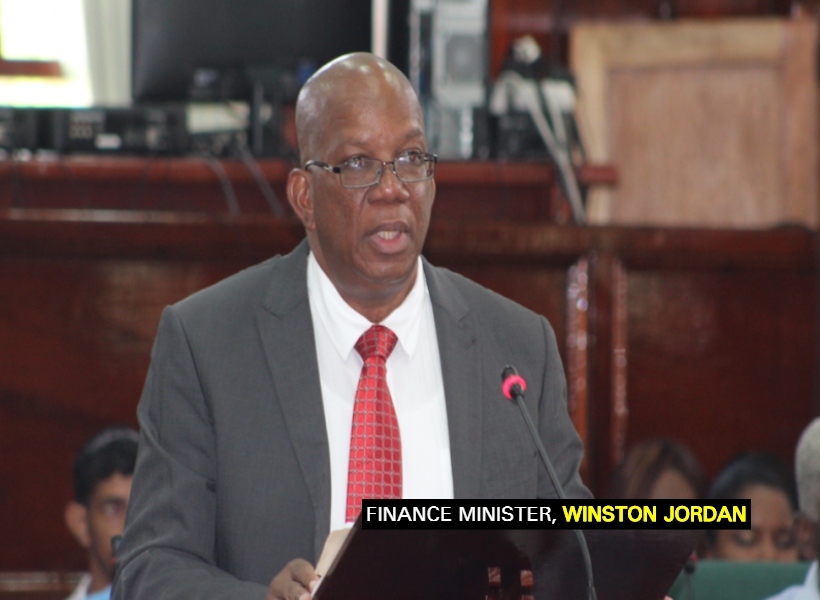The Government expends billions of dollars each year buying goods and services for public projects. From schools and hospitals to roads and bridges, this means big budgets and complex plans. It also means ideal opportunities for corruption and even slapdash work.
It appears however that the government is prepared to take a no-nonsense approach towards substandard work for public projects as Finance Minister, Winston Jordon, yesterday announced that in the coming year, contractors who do shoddy work will face debarment procedures. He said that this will be catered for in the amended law.
In 2016, the government spent some $1B to construct the Kato Primary school in Region Eight. That facility had some serious defects including cracks on the walls and stairs, sinking ceilings, uneven stairs, termite infestations, and exposed electrical wires.
At the time, there was no law in place to hold the contractor accountable but in 2019, the government will be putting new measures to prevent the “Kato Primary School” scenario from reoccurring.
During the 100th sitting of the National Assembly, Jordon said that to support the expansion of the Public Sector Investment Programme and public services, the government has prioritized the modernization of Public Procurement which serves as a foundation for improved accountability and effectiveness.
The Minister explained that the revision of the public procurement legal framework has been completed, recently, and the next step is to undertake the legal drafting. While this is being awaited, amendments to the existing law and regulations will be pursued in 2019.
The amended law will give recognition to 20 percent of procurement going to small businesses; debarment procedure; mandatory procurement plans; clarifying bidders’ registration data and amending thresholds for restrictive tendering and the quotation method.
In addition, Guyana is expected to commence utilizing the CARICOM Public Procurement Notice Board for all public procurement. This, according to the Finance Minister, will allow entities to advertise on a regional site while registered local bidders will have free access to the advertisements.
Also, in keeping with the technological advancements in procurement, the strategy for the long-awaited e-procurement will be completed in 2019, with implementation envisaged to commence in 2020.













